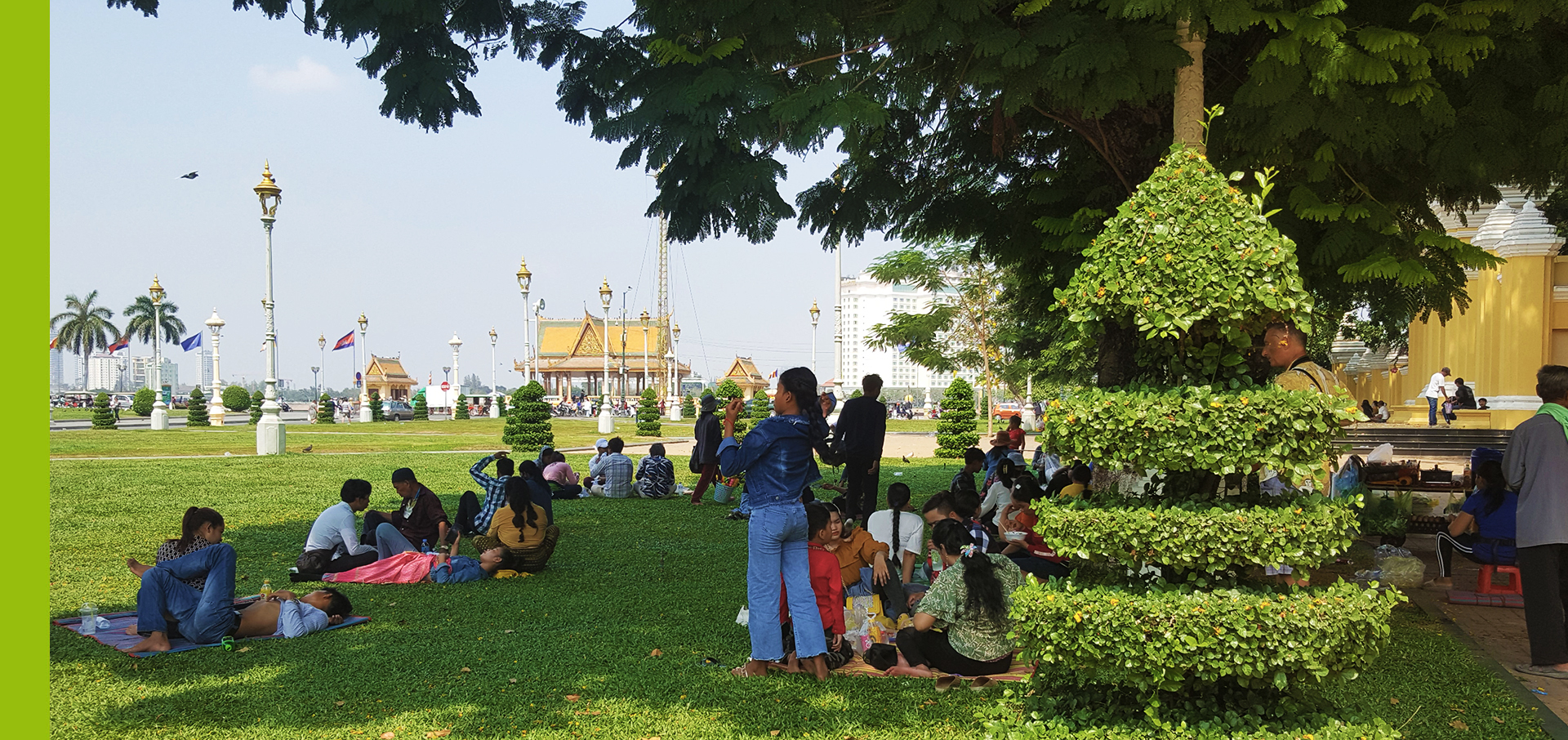Publication of the B4P Transformation Toolbox Planning and Design Guideline “Governance and Participation” in Khmer language
Build4People is thrilled to announce the publication of the Planning and Design Guideline Governance & Participation in Khmer language, a key element of the B4P Transformation Toolbox. Co-publisher is the Cambodian Institute for Urban Studies.
This newly released guideline is the result of several years of intensive transdisciplinary collaboration within the Build4People project. It synthesizes conceptual and methodological insights from participation research, practical experiences gathered through the implementation of participatory formats in close cooperation with local research partners, and the expertise of future Build4People partners in the field of digital participation tools.
The documented practical experiences reflect important lessons learned from adapting and further developing widely established participatory approaches to the specific socio-cultural context of Phnom Penh. The guideline showcases a range of best-practice examples:
- User-centered approaches aimed at making public spaces more inclusive
- Social marketing strategies that actively engage diverse “green pioneers” in Phnom Penh, provide visibility to them as role models, and thereby foster sustainable lifestyles.
- Low-threshold participation formats such as pop-up kiosks and the Build4People Citizen Science App, which help systematically capture and visualize citizens’ needs and perspectives.
- Larger-scale participatory instruments like Urban Living Labs (e.g., the Build4People Ecocity Transition Lab) and the Build4People Sustainable Building Arena, which enable co-creation processes across stakeholder groups.
The guideline is intended to serve as both a theoretical and practical resource for researchers, urban practitioners, and decision-makers aiming to promote inclusive and participatory urban transformation processes in Phnom Penh and beyond.
Participation is always an open, evolving process. In this sense, the guideline should also be understood as a living document, one that will continue to grow through future experiences and contextual adaptations in Phnom Penh, allowing it to remain relevant and impactful over time.
Our particular thanks go to all of the authors and reviewers who made this publication possible.
Authors:
- Anke Blöbaum, Department of Environmental Psychology, Otto-von-Guericke University Magdeburg
- Michael Waibel, Department of Geography, University of Hildesheim
- Anja Jannack, Laboratory of Knowledge Architecture at TU Dresden
- Sovanarith Sieng, UN-Habitat Bangkok Programme Office, formerly SMMR project
- Andreas Deuß, Department of Environmental Psychology, Otto-von-Guericke University Magdeburg
- Christina Karagianni, Department of Sustainable Building Technology, Technical University of Applied Sciences Lübeck
- Yannick Müller, CityLAB Berlin, Germany
Reviewers
- Rolf Messerschmidt, Eble Messerschmidt Partner, Tübingen, Germany
- Sokunlanita May, Chair of die Association Women in Architecture and Engineering in Cambodia (W.A.E.)
Download link of Khmer language version:

Download link of English language version:

Link to English Build4People News announcement about the publication of a B4P Snapshot Interview featuring the guideline’s lead author Dr. Anke Blöbaum explaining about the approach of the Guideline “Governance & Transformation”















